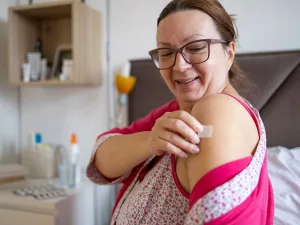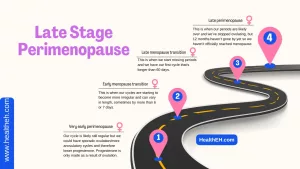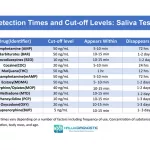Quick answer: hormone replacement therapy can tilt the scales a bit, but it’s not a miracle‑pill. Some women see modest fat loss when estrogen is restored; others notice water retention or a tiny bump on the scale. The real story lives in the details – how hormones affect metabolism, what the research actually says, and which lifestyle moves will amplify the benefits.
In the next few minutes we’ll unpack the science, share real‑world experiences, and give you a toolbox of weight loss tips that work hand‑in‑hand with HRT. By the end you’ll know exactly when HRT might help you, how to choose the right formulation, and what you can do today to feel lighter, stronger, and more in control.
Hormones & Weight
What hormones shift during menopause?
When you hit menopause, the endocrine orchestra starts losing some of its key players. The biggest drops are in estrogen and progesterone, but you also see changes in testosterone, thyroid hormones, cortisol, and even insulin. Those swings don’t just cause hot flashes – they rewrite how your body burns calories and stores fat.
Why does a drop in estrogen affect metabolism?
Estrogen is like a metabolic accelerator. When levels fall, two things happen:
- Fat oxidation slows down. Your body becomes less efficient at turning stored fat into energy.
- Basal metabolic rate (BMR) dips. You burn fewer calories at rest, so the same diet that once kept you steady now adds pounds.
According to Healthline’s 2025 analysis, women on estrogen‑only HRT often see a small uptick in lipid oxidation after three months, which can translate into a 1–2 kg weight shift over a year.
How does insulin resistance emerge in menopause?
Estrogen also helps keep insulin tidy. When it wanes, cells become a bit “stubborn,” refusing glucose and prompting the pancreas to pump more insulin. That extra insulin is a well‑known fat‑storage hormone. The result? More cravings, more stored belly fat, and a tougher time shedding pounds.
Can HRT restore these hormonal pathways?
In short, yes – but it’s not a switch‑on/off scenario. Estrogen replacement can:
- Boost lipid oxidation and modestly raise BMR.
- Improve insulin sensitivity, making it easier for carbs to be used for energy rather than stored.
- Support thyroid conversion (T4 → T3), keeping the “engine” humming.
- Temper cortisol spikes, which otherwise drive belly‑fat accumulation.
These mechanisms are why many clinicians see a gentle, steady weight trend rather than a dramatic loss.
What Studies Show
What do clinical studies say?
Peer‑reviewed research paints a nuanced picture. Large trials like the Women’s Health Initiative (WHI) didn’t set out to test weight loss, but secondary analyses show that women on oral estrogen + progesterone lost, on average, 0.5–1 kg over 5 years compared to non‑users. Smaller randomized studies that focus on estrogen‑only patches report 1–2 kg loss after 6–12 months, especially when participants also engaged in mild exercise.
Are there real‑world success stories?
Take Maria, a 52‑year‑old teacher from Ohio. After a year of worsening night sweats and creeping “menopause weight gain,” she started a low‑dose transdermal estradiol patch while swapping her afternoon soda for a protein‑rich snack. In four months she dropped 7 lb, her waist shrank by 2 inches, and she reported feeling “more energetic” for the first time in years. Stories like Maria’s illustrate that the combination of HRT plus a mindful hormone therapy diet can move the needle.
What are the contradictory results?
Not every study finds a benefit. Some RCTs observed no change in body mass index, while a few noted slight fluid retention—especially with oral estrogen, which can increase sodium reabsorption. Differences often stem from:
- Route of administration (pill vs. patch vs. gel).
- Dosage levels and whether progesterone is added.
- Baseline activity and diet of participants.
That’s why the medical community emphasizes a personalized approach rather than a one‑size‑fits‑all prescription.
How does the route of administration matter?
Transdermal (patch or gel) delivery bypasses the liver, reducing clot‑risk and often causing less water weight gain. Oral tablets undergo first‑pass metabolism, which can raise triglycerides and modestly increase weight‑holding fluid. If clotting risk or weight gain concerns you, a patch or gel might be the smarter start.
Practical Tips
Diet tweaks that complement HRT
Think of your diet as the fuel that lets restored hormones work their magic.
- Prioritize protein. Aim for 20‑30 g at each meal to protect lean muscle, which fuels metabolism. Dr. Melissa Miskell highlights that estrogen plus adequate protein can mitigate muscle loss during menopause.
- Fiber & healthy fats. Soluble fiber (oats, beans, berries) steadies blood sugar, while omega‑3s (salmon, flaxseed) calm inflammation that can sabotage insulin.
- Limit refined carbs. They spike insulin and increase cravings—exactly what you want to avoid when estrogen is trying to improve insulin sensitivity.
Exercise routines that boost metabolism
HRT alone won’t rewrite your calorie budget, but it can make exercise feel easier.
- Strength training 2‑3 times a week. Lifts, resistance bands, or body‑weight moves preserve muscle mass, which keeps BMR higher.
- Short HIIT bursts. A 15‑minute interval session 2‑3 times weekly can improve estrogen‑related fat distribution, nudging belly fat away.
- Stay active daily. Even a brisk 20‑minute walk boosts post‑exercise calorie burn (the “afterburn” effect).
Managing HRT side‑effects that sabotage weight loss
Some side effects feel like roadblocks, but a few tweaks can keep you cruising.
- Fluid retention. Keep sodium under 2,300 mg/day, drink plenty of water, and add potassium‑rich foods (bananas, spinach) to balance electrolytes.
- Sleep disruption. Night sweats and insomnia drain energy. A cool bedroom, consistent bedtime routine, and mindfulness breathing can improve sleep quality, which in turn supports weight‑control hormones.
- Appetite spikes. If you notice cravings, try a high‑fiber snack (apple slices with almond butter) before meals to keep hunger at bay.
When to adjust dosage or try a different formulation
Listen to your body and your doctor.
- Persistent bloating or unexplained weight gain after 3 months? A dosage tweak or switching from oral to transdermal might help.
- New mood swings or breast tenderness? Those could signal the need for a different estrogen/progesterone balance.
- Always schedule a follow‑up lab panel (estradiol, lipids, thyroid, HbA1c) to see how the therapy is reshaping your internal chemistry.
Tracking progress beyond the scale
Weight alone is a noisy metric. Try these complementary gauges:
- Waist circumference. A 2‑inch reduction often means less visceral fat, which is linked to heart disease.
- Body‑fat percentage. Bio‑impedance scales give a clearer picture of lean vs. fat mass.
- Symptom diary. Note energy levels, sleep quality, and cravings. Over weeks you’ll see patterns that the number on the scale can hide.
Benefits vs Risks
Potential weight‑gain side effects
Not every woman experiences weight loss. Some report a slight rise in water weight, especially with oral formulations. That’s often temporary and can be managed with the sodium tricks above. Remember, Healthline notes that HRT may cause modest weight gain in a minority of users.
Long‑term health benefits of HRT
Beyond the scale, HRT shines in several areas:
- Bone density. Estrogen slows osteoporosis, a major concern after 60.
- Cardiovascular health. Starting HRT before age 60 usually improves lipid profiles and reduces heart‑attack risk.
- Mood & cognition. Many women report clearer thinking and steadier moods, which indirectly support a healthier lifestyle.
When HRT isn’t recommended
HRT isn’t a universal solution. It’s generally avoided if you have:
- History of estrogen‑dependent breast cancer.
- Active blood‑clotting disorders or high clotting risk.
- Uncontrolled high blood pressure or liver disease.
In those cases, lifestyle tweaks alone, or alternative non‑hormonal therapies, become the mainstay.
How to evaluate personal risk
Ask yourself these three quick questions:
- Do I have a personal or strong family history of breast cancer or clotting disorders?
- Am I under 60 and generally healthy?
- Are my menopause symptoms (hot flashes, sleep loss, mood swings) severe enough to impact daily life?
If you answered “yes” to #2 and #3, and “no” to #1, you’re a good candidate for a trial of HRT—provided you work with a qualified specialist who monitors labs every 6‑12 months.
Building a trustworthy doctor‑patient partnership
Transparency is key. When you meet your clinician, consider asking:
- “What formulation (pill, patch, gel) do you think suits my lifestyle?”
- “How often will we check my hormone levels and metabolic markers?”
- “What are the exact side‑effects I should watch for?”
When both you and your provider share data and expectations, the journey feels collaborative rather than experimental.
Key Takeaways
Hormone replacement therapy can be a gentle ally in the battle against menopause weight gain, but it’s not a standalone weight‑loss program. Restoring estrogen often improves metabolism, insulin sensitivity, and even mood—all of which pave the way for healthier habits. The real gains happen when you pair HRT with a balanced hormone therapy diet, regular strength and cardio work, and vigilant self‑monitoring.
If you’re curious whether HRT might tip the balance for you, the best next step is a conversation with a menopause‑trained physician. Ask about dosage, delivery method, and a lab panel to track progress. And remember: the most sustainable weight loss comes from a partnership between your body’s chemistry and the everyday choices you make.
What’s your experience with HRT and weight? Have you tried a new diet or exercise plan while on therapy? Share your story in the comments—your journey could be the encouragement someone else needs to take the first step.
























Leave a Reply
You must be logged in to post a comment.